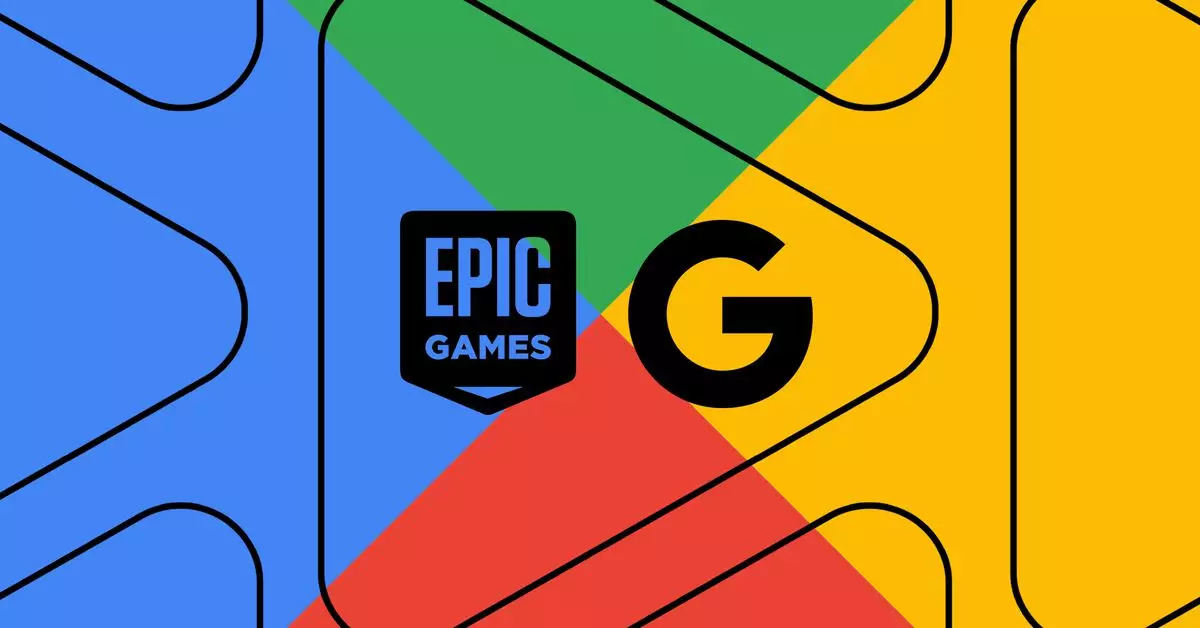The mobile gaming landscape is undergoing a significant transformation as Epic Games forges a new alliance with Telefónica, one of the world’s largest telecommunications providers. This partnership aims to preinstall the Epic Games Store on compatible Android devices sold by Telefónica—a strategic move that is expected to disrupt the current app store dynamics. The implications of this collaboration extend beyond mere app installation; they challenge existing monopolistic structures in the mobile ecosystem, particularly that of Google.
This groundbreaking decision to preinstall the Epic Games Store marks a pivotal moment in the ongoing struggle between Epic and Google. Epic Games has been vocal about its intent to dismantle what it perceives as Google’s monopolistic dominance over the Android app marketplace. Last December, a federal jury sided with Epic in a significant legal case against Google, substantiating its claims that the search giant had entrenched its power by making it difficult for alternative app stores and services like Fortnite to compete. The carrier’s decision to embrace this new store aligns with the court’s ruling and signals a broader trend of defiance against established giants in the tech sector.
Telefónica’s endorsement of the Epic Games Store not only represents a shift in the distribution of mobile applications but also embodies a crucial step toward increasing competition in the platform ecosystem. By offering a viable alternative, Telefónica hopes to provide users with greater choice and potentially improve revenue-sharing models for developers, circumventing the high fees traditionally associated with platforms like Google Play.
Epic Games’ journey on the mobile front has been fraught with obstacles. Although the company launched the Epic Games Store for mobile devices only recently, it had ambitions to sidestep conventional distribution methods much earlier. The previous attempts to have various phone manufacturers preinstall Fortnite installer apps were hindered by contractual barriers and potential coercion from Google.
However, Telefónica’s approach seems to foster a more collaborative environment. This was not the first time the carrier has worked with Epic; in 2020, Movistar customers in Spain were able to charge Fortnite purchases directly to their phone bills, establishing a precedent for revenue-sharing arrangements. With the new partnership, there’s potential for a variety of applications—not just games—to be featured, which could broaden the landscape of available content and services.
While this announcement has been heralded as a win for Epic and an encouraging sign for developers looking to escape Google’s grip, it raises questions about the response from major players in the industry. For instance, what does Samsung think about this development? The relationship between Samsung and Epic has recently faced legal tensions, indicated by Epic’s lawsuit against Samsung just last month. This makes the preinstallation of the Epic Games Store on Samsung devices—essentially competing with Google Play—a complex issue that could have repercussions for their partnership.
Similarly, there are implications for how other carriers will react to Telefónica’s bold decision. Will they follow suit, or remain apprehensive in the face of potential backlash from Google? The initial moves by Telefónica could either represent the vanguard of a larger movement against traditional app distribution methods or remain an isolated case if other cellular networks defer to Google’s established practices.
As more consumers become aware of alternative gaming platforms and the benefits they offer—such as different revenue structures and a greater variety of available content—there’s potential for a noticeable shift in consumer behavior. If the Epic Games Store can successfully establish itself as a reputable and accessible alternative, it may encourage users to reconsider their habitual reliance on the Google Play Store.
The collaboration between Telefónica and Epic Games could indeed herald a new era in mobile application distribution. In a world where consumers are increasingly sensitive to monopolistic practices and are hungry for diversity in their digital experiences, the Epic Games Store’s preinstallation is a noteworthy endeavor that could reshape mobile use in the years to come. As this scenario unfolds, one can only watch and see whether this partnership will inspire others in the industry to reevaluate their strategies against the forces of established power.


Leave a Reply